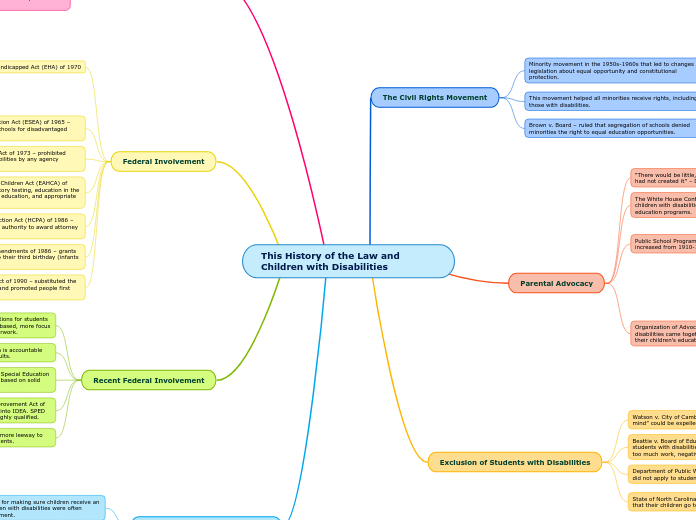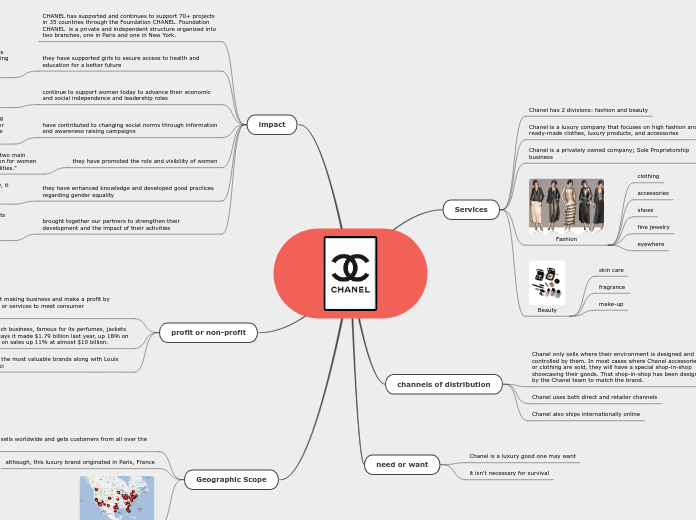This History of the Law and Children with Disabilities
Compulsory Attendance In 1918
I wonder how people felt about this at the time. I know there have always been peers in my classes growing up who said they felt like school is like prison. Maybe children had a better attitude about school before it was mandatory.
all states were responsible for making sure children receive an education. However, children with disabilities were often excluded from this requirement.
Recent Federal Involvement
Every Student Succeeds Act of 2015 – gave more leeway to states and eliminated controversial requirements.
With this being the most recent Act, it seems like we're due for another update!
Individuals with Disabilities in Education Improvement Act of 2004 – increased accountability was written into IDEA. SPED teachers must be certified in SPED and be highly qualified.
The President's Commission of Excellence in Special Education in 2002 – must used instructional strategies based on solid evidence. Reforms were recommended.
I'm so glad my campus offers a class about evidence based practices!
No Child Left Behind Act of 2002 – education is accountable for scientific based programs to improve results.
IDEA Amendments of 1997 – raised expectations for students with disabilities, practices must be research based, more focus on teaching and learning, less focus on paperwork.
This amendment is as old as I am!
Federal Involvement
The Individuals with Disabilities Act of 1990 – substituted the word “handicap” with “disability” and promoted people first language.
I really appreciate this people first language!
The Education of Handicapped Amendments of 1986 – grants to begin intervention from birth to their third birthday (infants and toddlers).
I'm impressed that we realized the importance of early intervention when we did, considering all the growth that was made since the beginning of the 1900s.
The Handicapped Children’s Protection Act (HCPA) of 1986 – amended to EAHCA to give courts authority to award attorney fees to parents or guardians.
The Education of All Handicapped Children Act (EAHCA) of 1975 – established nondiscriminatory testing, education in the LRE, procedural due process, free education, and appropriate education.
It surprises me that the word "idiot" was used to describe individuals with disabilities.
Section 504 of the Rehabilitation Act of 1973 – prohibited discrimination of people with disabilities by any agency receiving federal funds.
Elementary and Secondary Education Act (ESEA) of 1965 – government provided money to schools for disadvantaged students.
The Education of the Handicapped Act (EHA) of 1970
consolidated and expanded federal grant programs.
Required students with disabilities to be provided with the services necessary for them to progress.
Mandated students with disabilities to be educated.
First freestanding SPED law
The Education Amendments of 1974 – amendments to EHA requiring a full education.
Equal Opportunity Cases
Mills v. Board of Education – because segregation based on race was unconstitutional, so was segregation based on disabilities. This resulted in a clear outline of due process and procedural safeguards.
Right to a hearing, right to appeal, right to have access to records, requirement of written notice in all stages of the process.
PARC v. Pennsylvania – all students with mental retardation must be provided free public education.
I like how this case didn't seem like a big deal at the time. It was only a state ruling. However, many future cases used it as precedent making it especially important.
Exclusion of Students with Disabilities
State of North Carolina – made it a crime for parents to persist that their children go to school after being expelled.
It's a good thing we don't view parents as criminals anymore! Now we know that they are one of the most important moving parts of a child's success.
Department of Public Welfare v. Haas – mandatory attendance did not apply to students with disabilities.
Beattie v. Board of Education – school officials could exclude students with disabilities because they were nauseating, took too much work, negatively affected school discipline.
How would one even provide evidence that a student met this "criteria" for exclusion?
Watson v. City of Cambridge – students who were “weak in mind” could be expelled from school.
Parental Advocacy
Organization of Advocacy Groups – parents of children with disabilities came together and began to advocate for change in their children’s education.
Additional Advocacy Groups – parents have come together and formed associations for cerebral palsy, autism, down syndrome, learning disabilities, and mental health.
The Association of People with Severe Handicaps – TASH was established in 1974 to offer information on best practices, research, and to promote humane treatment.
The Council for Exceptional Children – CEC was founded in 1922 to emphasize education of “special children”, establish professional standards of teachers, and unite others in the cause.
The National Association for Retarded Citizens – ARC was established in 1950 to provide information, monitor quality services, and advocate for rights.
Public School Programing – special segregated classes increased from 1910-1930.
The Great Depression caused the segregated classes to have grim learning conditions.
Teacher’s thought segregation was good for the students.
This still happens today.
The White House Conference of 1910 – resulted in moving children with disabilities from institutions into segregated education programs.
Although this was a great step, their conditions were still terrible and children were still being mistreated.
“There would be little, if any, special education if the parents had not created it” – Dr. Edwin Martin
Parents are so important! I hope I can remember that as an educator, but also as a future parent!
The Civil Rights Movement
Brown v. Board – ruled that segregation of schools denied minorities the right to equal education opportunities.
Parents of children with disabilities began to advocate for their children to receive equal education by citing Brown.
This movement helped all minorities receive rights, including those with disabilities.
"Free love" movement was just around the corner. Not only did legislation change, but society was also changing.
Although the attitude of pushing moral limits is not necessarily a good thing, it resulted in a lot of progress in society for minority groups!
Minority movement in the 1950s-1960s that led to changes in legislation about equal opportunity and constitutional protection.









